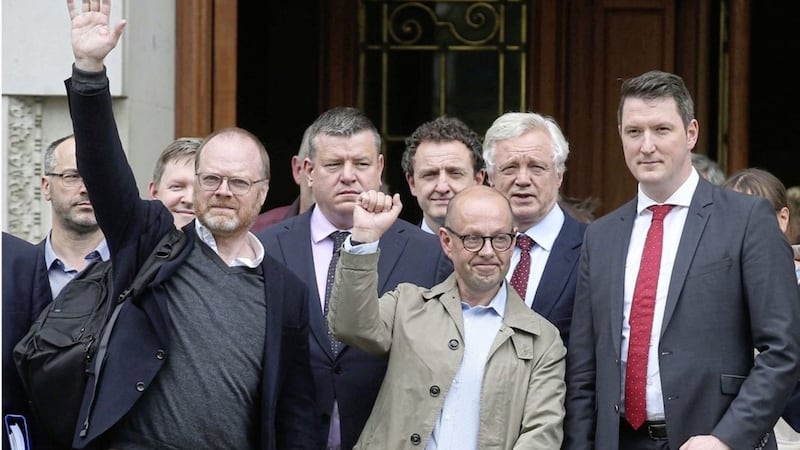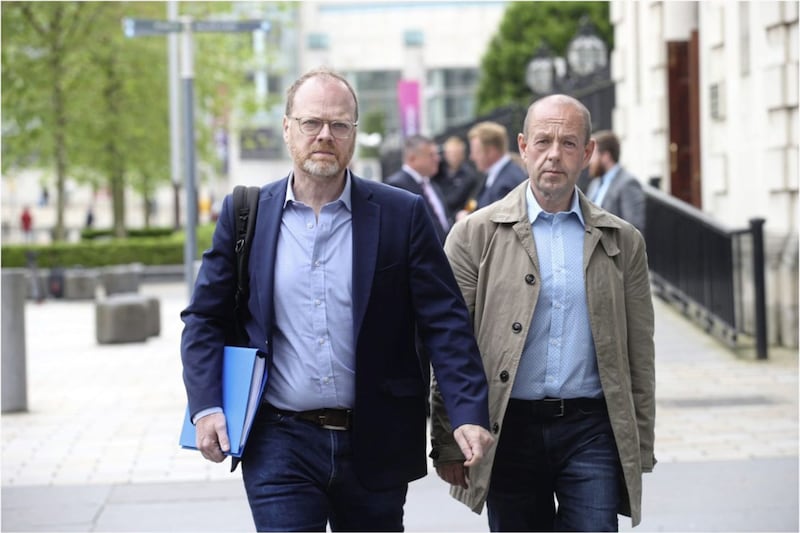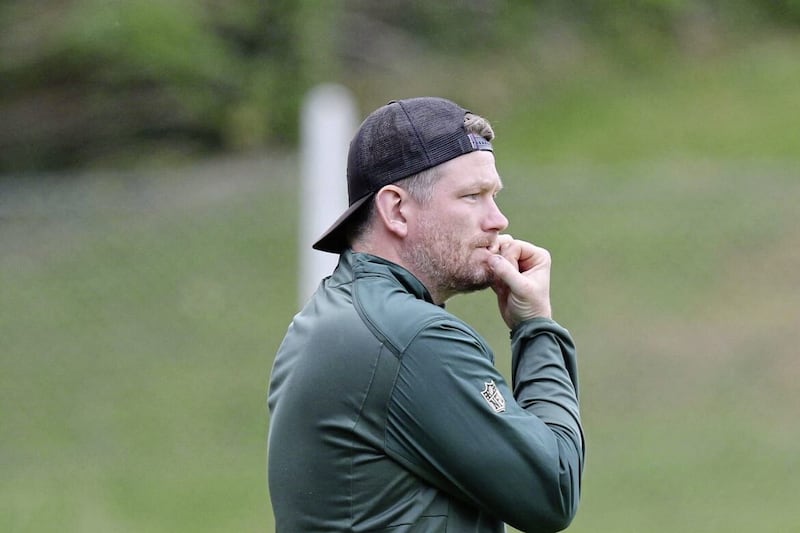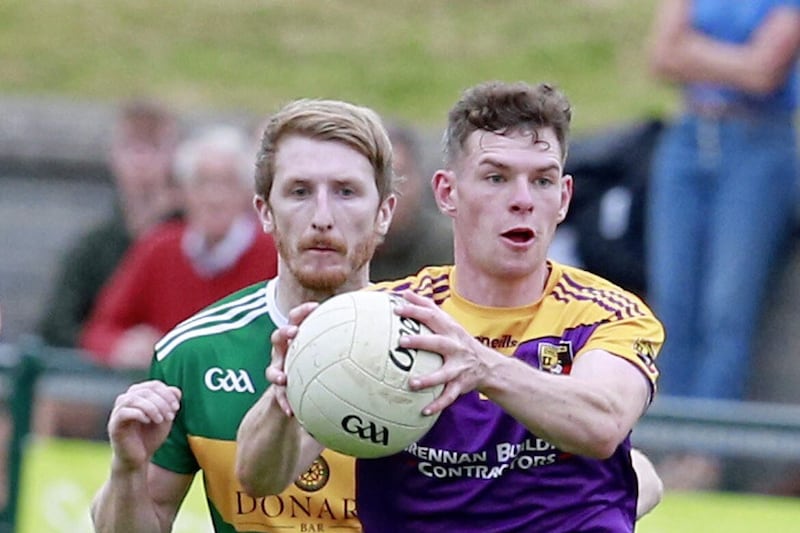"I'M going to make a point, I'm not sure I'm going to get too far, but I'm going to make it."
If the humid conditions inside Belfast's packed appeal court didn't already have Peter Coll QC sweating under his horsehair wig and heavy barrister's robes, the smooth demolition of each skilful presented argument he offered to Sir Declan Morgan must certainly have accomplished it.
He carried on gamely through his list of points, but the Lord Chief Justice crushed one after the other with a calm efficiency reminiscent of Serena Williams dispatching an unseeded opponent in the early rounds of a tennis tournament.
Concern at `lack of due process' has been at the heart of criticism of the joint PSNI/Durham Police operation which saw arrests of journalists Barry McCaffrey and Trevor Birney ever since the surprise dawn raids on their homes and offices last August.
Now that the judicial process was engaged, it was the police forces who were on the back foot, as Sir Declan, sitting with fellow appeal court justices Sir Seamus Treacy and Mrs Justice Siobhan Keegan, demanded the return of thousands of files containing millions of pages, computer equipment and phones.
"We are satisfied that the second access condition (of theft)... did not provide any basis for the execution of the warrant (and) we take the view that it was unclear what offence was being investigated under Section 5 (of the Official Secrets Act)," Sir Declan said.
"It seems to us that where an application has been made of such a kind, it would be necessary to spell out in quite some detail what the investigated offence was and in respect to whom."
Senior investigating officer Darren Ellis of Durham Constabulary, who oversaw the arrest and search operation, leaned against a wall at the back of the courtroom and listened stoney-faced as the entire basis for the operation was thus dismissed.
There was no room for him in the cramped public gallery, heaving as it was with journalists and human rights activists, galvanised by what has become a cause célèbre.
Wedged in the centre of the second row between NUJ members from north and south of the border was Tory grandee David Davis, who one wag in the press box suggested has visited Northern Ireland almost as many times during this case as his entire time as Brexit secretary.
Certainly, he was happier to talk to local journalists about this case than he ever had been about the backstop.
"I was frankly astonished by what the PSNI was proposing and indeed the whole challenge to the concept that journalists who have received a copy of a leaked document could be charged with theft," he said of his decision to publicly support the men this week.
"Beyond the basic freedom of the press and freedom of whistleblowers, there is also the issue of justice for the families in a case where collusion has been asserted by the ombudsman."
Outside the court attention turned to the police chiefs, with the journalists, their lawyers and supporters urging outgoing PSNI chief constable George Hamilton to end his pursuit of Mr McCaffrey and Mr Birney and seek to bring the Loughinisland killers to justice.
"This is just another attack on the Loughinisland families," Mr Birney said as he thanked them for their courtroom support.
His solicitor Niall Murphy said the arrests "exposed the warped mindset that conditioned the police approach to this film".
Mr McCaffrey was visibly emotional, his voice breaking as he spoke directly to the outgoing chief constable: "George Hamilton, it's not too late to do the right thing.
"He can do the right thing. He can give justice to the Loughinisland families... The lord justice has said that what we do is right, we have the right to hold people to account.
"George, you need to think what you're doing and give justice to Loughinisland, give justice to Enniskillen, the Ormeau Road. Don't leave with a bad legacy. Do the right thing."






